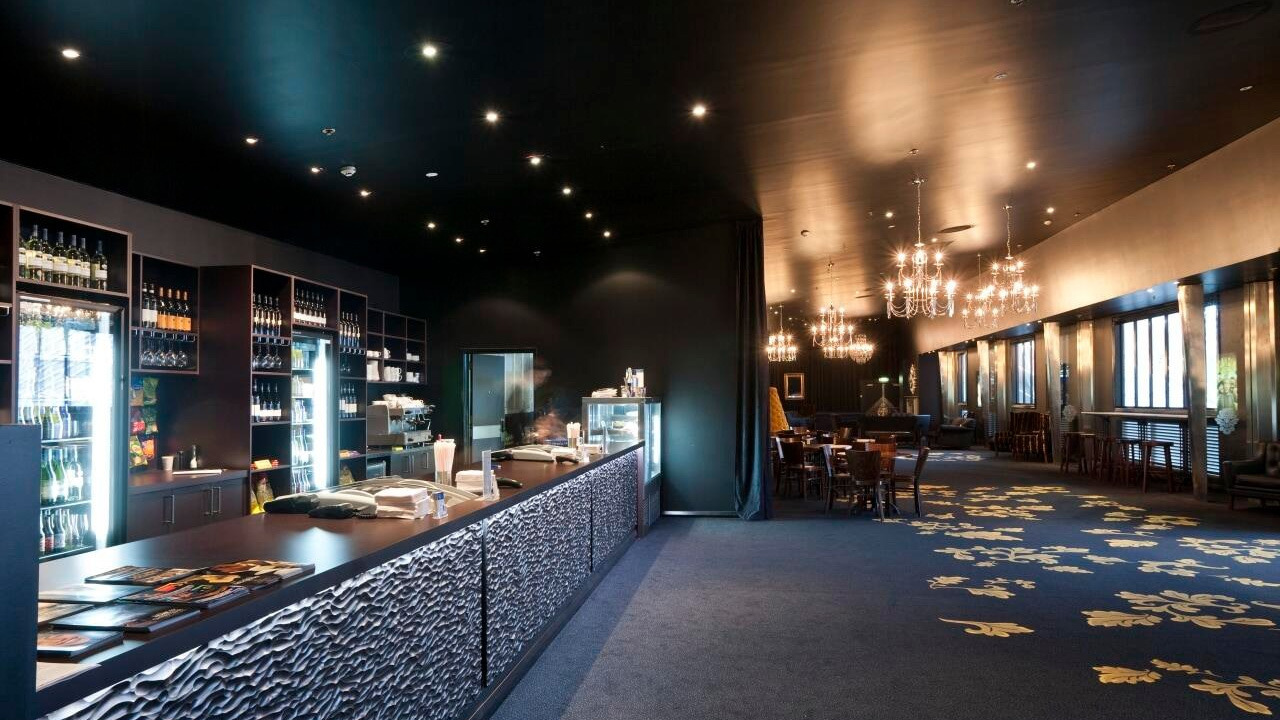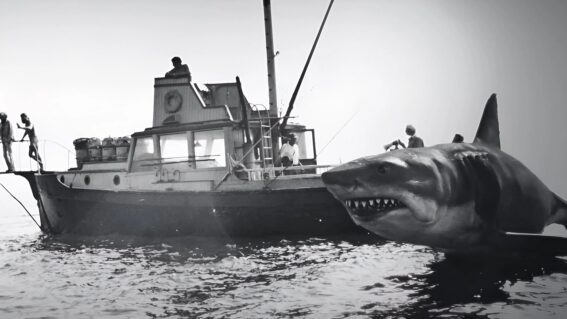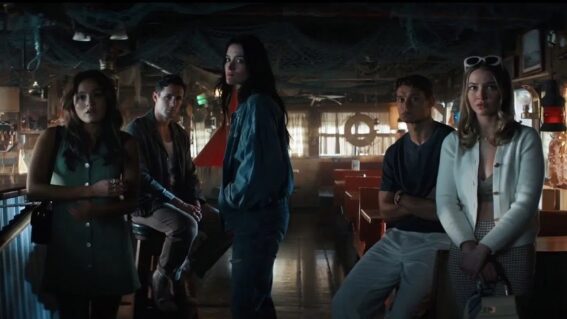How one cinema and a film society helped save NZIFF for the regions
The owners of LIDO Cinema got together with the Hamilton Film Society to find a way to save NZIFF—for them and for many other regions.

NZIFF 2024 was cancelled for the regions until it wasn’t. Liam Maguren spoke to the owners of LIDO Cinema Hamilton (pictured above) about their role in saving the film festival for six locations.
It’s been a turbulent start of the year for Whānau Mārama: New Zealand International Film Festival. In February, word spread quickly about the shock resignations of key senior staff. Days later, an official press release announced Paolo Bertolin as the new artistic director.
To many a film-lover in Aotearoa, the hardest news of all was learning that the festival was only coming to Auckland, Wellington, Christchurch and Dunedin. This cut out Hamilton, Havelock North, Masterton, Matakana, Napier, Nelson, New Plymouth, Palmerston North, Tauranga and Timaru as well as new-to-2023 locations Whangārei and Gisborne.
As stated in the same press release as Bertolin’s appointment: “We acknowledge that for some of you the festival won’t be screening in your town or city this year and we appreciate that this will be disappointing. After a challenging few years navigating a number of significant impacts, we’ve had to adapt the festival to ensure its future viability.”
LIDO Hamilton to the rescue
Then, just a month later, NZIFF added half those regions back on the 2024 line-up. As per the press release: “The festival has been working closely with a collective of independent cinema owners, operators, and local film societies with a view to including them in this year’s festival run.”
Two of those people who have been working with NZIFF to make this happen, Ross Churchouse and Gordon Wood, purchased LIDO Cinema Hamilton six months ago. Wood was first contacted by NZIFF about the original decision to not include Hamilton—six hours before the official press release went out. “For Hamilton not to get it, the fourth biggest city and the fastest growing city in the country, felt extremely disappointing,” Wood says. “I expressed my disappointment to them.”
“That’s a significant amount of business for us,” Churchouse adds. “Not so much box office, but bums on seats, turnover, and people experiencing the theatre. For us, it’s about trying to bring audiences back to the cinema… So to lose an event, which effectively can bring 1000 people or more to the theatre multiple times, is a big deal.”
Wood and Churchouse asked NZIFF what was needed to get Hamilton across the line. The answer: to cover the shortfall created by a lack of sponsorships and other “significant impacts” (the pair wished to keep the exact amount under wraps).
Wood and Churchouse had the methods, willingness, enthusiasm, and promises of promotion the fest needed, but as Wood recalls, “we wouldn’t have done it without the financial side, which was 99% down to the Hamilton Film Society,” who managed to raise the money internally. The group regularly screen their films at the LIDO and were heavily involved with the Hamilton leg of NZIFF in the past. “From there, we were able to swiftly get some promises of cash coming,” Churchouse states.
Wood adds: “If we found out [about NZIFF not coming to Hamilton] three months prior, this probably wouldn’t have been an issue at all. We could have got everything in place and made it work.”
More regions reclaim NZIFF
Churchouse asked NZIFF, “Where else would you like to screen [the festival]?” and offered to “reach out to all them if you’re happy for me to do that. If each individual cinema makes that decision to put up the cash, raise the cash, fundraise, however they want to do it—for this year only—to help you get across the line, we’ll see what we can do.”
Ross reached out to the five locations NZIFF gave him— Napier, Nelson, New Plymouth, Masterton and Tauranga. All five responded by “getting across the line” and reclaiming NZIFF for their regions.
“A lot of the little sites are one-man bands,” Churchouse mentions. “You know, it’s just one-or-two people managing this little community cinema on behalf of the council. They don’t have a lot of infrastructure. So I said, ‘I’m happy to sit down and work out a marketing strategy for all of you. This is what we’re going to do in Hamilton and this is how we’re going to leverage various things that we have at our disposal that are low cost, or cheap, or easily accessible. It’s not a case of going, ‘Let’s go and spend a million dollars on marketing.’ It’s really a case of just being smart with what you can do within your local community.
“It’s important to also recognise that the total amount of money required can reduce. If we can get localised sponsorship—for example, if the Hamilton City Council said, ‘Look, we’ll give you two grand,’—that will actually come off of the money that we as the business have to put forward. So while the numbers are initially pretty high there is the potential for that to come down. We’re not doing this necessarily for a monetary gain at this point. We’re doing this because it allows us to keep this thing going.”
“I’ve seen it before,” Wood adds. “If you lose out on something like this, it’s far harder to get back in the following years.”
As of writing, there are still six previous regions currently not on the 2024 line-up: Gisborne, Havelock North, Matakana, Palmerston North, Timaru and Whangārei.
It takes a village (and film societies)
“It’s probably important to recognise that we’ve had nothing but positive experiences with NZIFF,” Churchouse mentions. “It’s never been confrontational or difficult and they took on board our criticism.”
Wood adds: “We had come in as the new owners of LIDO. There was loads of historical politics… rumblings and so on and so forth. We ignored it all. That was difficult to do at times, to be honest, but we concentrated on the goal in front of us, and I think that impressed NZIFF. The majority of what we do is very positive and forward-facing as it was with the Hamilton Film Society and I think that new building of a relationship also made it easier as well, I believe.”
Churchouse expands on that thought: “The most important thing is that NZIFF recognised, certainly through the conversations we had, there were some flaws in the strategy that they went with. I think, going forward, we’ll be more involved in the conversation a lot earlier, and when I say “we”, I mean cinema owners in general. I don’t think [NZIFF] realised the depth of support that was potentially out there for them because, probably, they never asked.”
Wood chimes in about the support they received from the Hamilton Film Society: “I’m absolutely thankful to the support that they’ve given through their members in raising the cash to get this across the line. Their additional and continued support when the festival comes, for me, isn’t to be underestimated.”
Churchouse concludes: “All the other locations we’ve spoken to have strong film societies who are willing and able to help and support them. They’re passionate. And this is why we did this in the first place—we’re passionate. I’ve worked for a lot of cinema companies and helped grow their business—as has Gordon—and it’s a real fun job. I know just about everyone in the industry—they’ve all been here for decades because they just love what they do and that’s the support that we’re getting.
“The people who are supporting us love the fact that these movies are coming. I think that bodes well for the future of the cinema industry. There’s a love for this and we want to support it.”
There are several ways to support NZIFF—visit their Support Us page for more. NZIFF 2024 returns 31 July to 4 September.
THIS INTERVIEW’S BEEN EDITED FOR BREVITY AND CLARITY
















